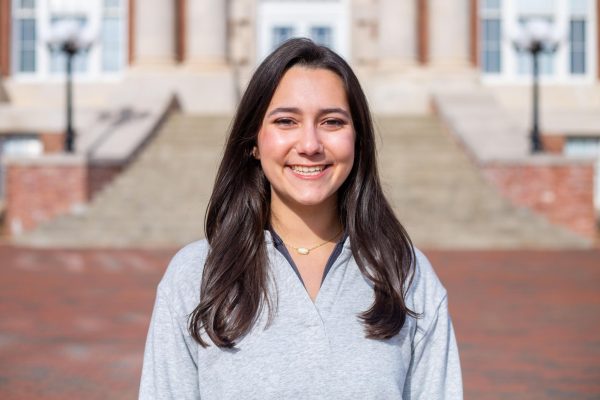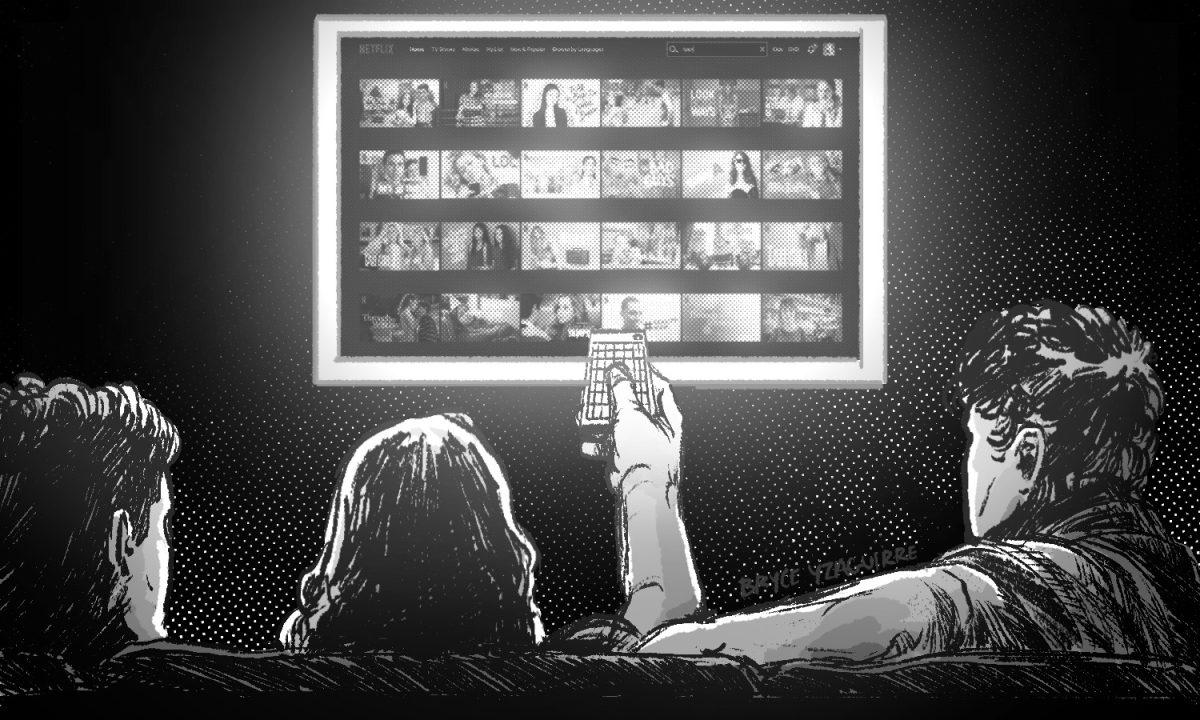In the eyes of media, high school is a time of full of emotional turmoil, navigating changes in responsibilities, relationships and making careless decisions, all of which is captured in a classic, coming-of-age story.
Scrolling through streaming services, you will find an endless supply of these “high-schoolers” experiencing wild scenarios and feeling completely alone in their fight against these various tribulations, with one such example being Sarah Cameron in “Outer Banks.” Existing outside of teenage stories are shows and movies featuring adults handling huge issues in their lives, like career changes, work-life balance, serious relationships and maybe even a midlife crisis like Michael Scott in “The Office.”
As a college student, I find myself lost in this sea of scrolling. Both genres are entertaining, but not completely relatable. I no longer fit into the “high school” group because my life decisions are now extremely impactful. They are contingent on my professional career and my personal happiness. I also do not fit into the “adult” group yet since I am not dealing with my professional career challenges, nor contending with the outcomes of long-term decisions. Instead, I am managing a compelling narrative in-between.
This in-between stage is technically called “emerging adulthood,” which is the development stage between adolescence and adulthood according to the American Psychological Association. It is a unique and complicated stage of life. However, in my scrolling, I fail to see representation of these struggles in media despite college students being the main demographic for streamed television. According to a 2022 report from Statista, people ages 18-34 are 62% of viewers for streaming services. A similar 2023 survey, also from Statista, states that the same age group makes up 75% of the users on Netflix. Therefore, I am here to advocate for emerging adults like myself and argue that our stories are much more interesting than any fictional high schooler. Hollywood should create more shows and movies that capture the complexities of being a college student.
I want to see a story about Rebekah, a girl who struggles with claiming her independence while still having a deep desire to remain close to her family. No one discusses the thrill of leaving for college to establish yourself while still longing for home. No one explores the loneliness of outgrowing friendships and searching for places to belong. There is no one to showcase the feelings of guilt from wanting independence, while also loving every second of it. Grappling with newfound independence is complicated, and I want to see more of it on screen.
I want to see a story about Michael, a boy who has soaked up each moment of his college life yet counts down to graduation, feeling like his life has yet to truly start. “College will be the best four years of your life,” said almost every adult in my life. However, what if I do not feel that way? What if I am ready to be treated like the adult I am expected to be? Regardless of the wonderful memories you make, sometimes it feels like you cannot criticize your college years because of the fear that life will go downhill after you accept your diploma. I argue that every student has faced this feeling of being trapped in some way, and representation of this compelling dichotomy would assure students they are not alone.
I want to see a story about Elizabeth, a girl who is so caught up in her college involvement and grades that she suffers from imposter syndrome. We have all experienced levels of doubts in our merits for success. Seeing a character struggle with feeling worthy of their accomplishments and trying to manage all of their ambitions would bring comfort to such students. Even further, college life exists in a vacuum. What will happen to Elizabeth when she graduates? Will she find the success she has worked for all her college life? How will she cope if she does not? These are questions faced by everyone, but they are especially heightened in college, since enrolling and being active in a university has become synonymous with success.
We do not need more college storylines glorifying illicit activities. Instead, I want to see stories of students grappling with addiction and still needing to turn in an assignment at 11:59 p.m. I want to see students overcoming expectations, finding their voice and learning who they are. I want stories of characters experiencing the thrill of trips with friends, the highs and lows of long-term and short-term relationships and dealing with the pressure of doing everything right.
These are real stories of “emerging adults,” and I think they are not only more compelling, but are needed. With that said, here is my letter to Hollywood:
Dear Hollywood,
There are enough coming-of-age tales for high schoolers and plenty of stories of adults in every scenario. We, emerging adults, are asking for stories about our struggles of balancing the world while being naïve, yet being expected to make critical life decisions. We experience being spoken down to as if we know nothing, yet are graded on our research of prevalent world topics in the classroom. We are viewed as less than adults but more than teenagers. Who are we? Tell our stories and help us feel less alone in our wanderings. Glorify our relentless efforts and celebrate our strengths. Give us comfort when we wind down. Give us a reason to procrastinate on our homework because we must keep watching to know how “Elizabeth” handles her burnout and lack of self-assurance and how “Michael” motivates himself to attend class each day despite every bit of life getting in the way.
Dear Hollywood: Stop writing about high schoolers
About the Contributor

Elisa Stocking, Staff Writer
Elisa Stocking is a senior communication major. Elisa is currently a staff writer for The Reflector.






















































































